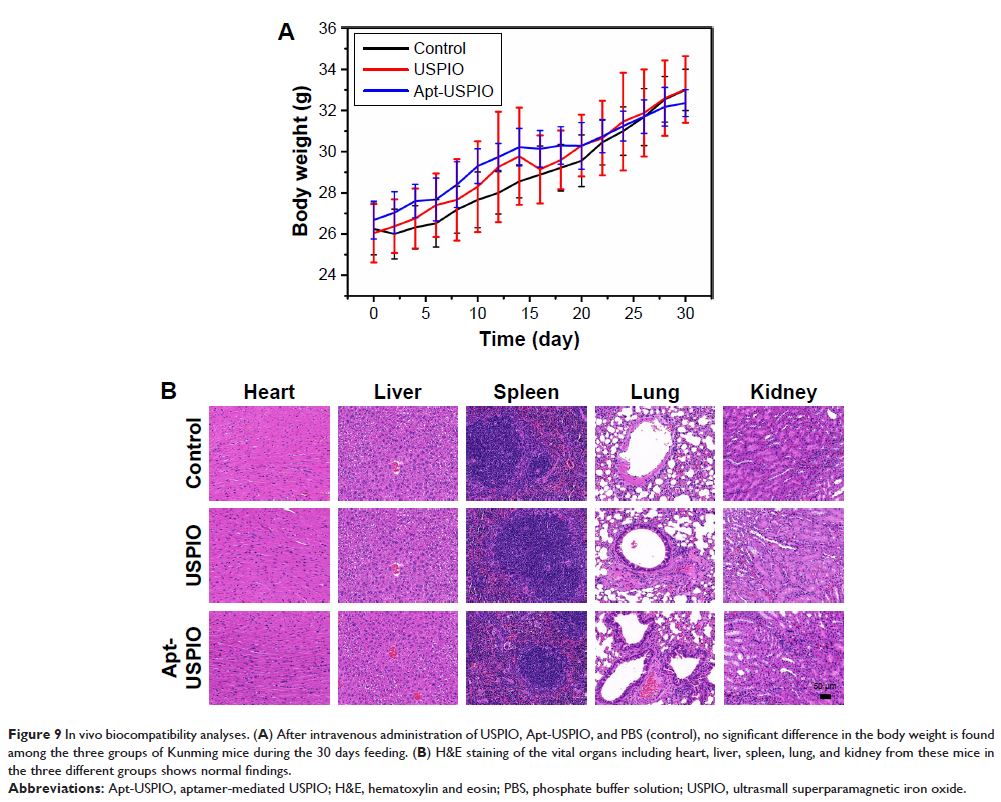108384
论文已发表
注册即可获取德孚的最新动态
IF 收录期刊
- 3.4 Breast Cancer (Dove Med Press)
- 3.2 Clin Epidemiol
- 2.6 Cancer Manag Res
- 2.9 Infect Drug Resist
- 3.7 Clin Interv Aging
- 5.1 Drug Des Dev Ther
- 3.1 Int J Chronic Obstr
- 6.6 Int J Nanomed
- 2.6 Int J Women's Health
- 2.9 Neuropsych Dis Treat
- 2.8 OncoTargets Ther
- 2.0 Patient Prefer Adher
- 2.2 Ther Clin Risk Manag
- 2.5 J Pain Res
- 3.0 Diabet Metab Synd Ob
- 3.2 Psychol Res Behav Ma
- 3.4 Nat Sci Sleep
- 1.8 Pharmgenomics Pers Med
- 2.0 Risk Manag Healthc Policy
- 4.1 J Inflamm Res
- 2.0 Int J Gen Med
- 3.4 J Hepatocell Carcinoma
- 3.0 J Asthma Allergy
- 2.2 Clin Cosmet Investig Dermatol
- 2.4 J Multidiscip Healthc

用于肝细胞癌的 GPC3 特异性适体介导的磁共振探针
Authors Zhao M, Liu Z, Dong L, Zhou H, Yang S, Wu W, Lin J
Received 15 March 2018
Accepted for publication 25 May 2018
Published 1 August 2018 Volume 2018:13 Pages 4433—4443
DOI https://doi.org/10.2147/IJN.S168268
Checked for plagiarism Yes
Review by Single-blind
Peer reviewers approved by Dr Thiruganesh Ramasamy
Peer reviewer comments 2
Editor who approved publication: Dr Linlin Sun
Purpose: To construct and test a hepatocellular carcinoma (HCC)-targeted
magnetic resonance probe based on a glypican-3 (GPC3)-specific aptamer
(AP613-1) with ultrasmall superparamagnetic iron oxide (USPIO).
Methods: Oleic acid-coated USPIO nanoparticles were modified with amino
polyethylene glycol on the surface. Amino groups of the USPIO nanoparticles
were reacted with the carboxyl group of 5' carboxyl-modified AP613-1, forming
an aptamer-mediated USPIO (Apt-USPIO) probe. The material characterization of
this probe including transmission electron microscopy (TEM), zeta potential,
dynamic laser scattering, and magnetic behavior was carried out. The targeting
efficiency and magnetic resonance imaging (MRI) performance of Apt-USPIO were
evaluated both in vitro and in vivo with USPIO alone as a control. The cytotoxicity
and biocompatibility of Apt-USPIO and USPIO were analyzed by cell counting
kit-8 tests in vitro and animal experiments in vivo.
Results: TEM imaging revealed that the Apt-USPIO nanoparticles were
spherical in shape and well dispersed. Specific uptake of Apt-USPIO in Huh-7
cells could be observed using the Prussian blue staining test; however, no
uptake of USPIO could be found. In vitro phantom T2-weighted MRI showed a significant decrease of the signal intensity in
Apt-USPIO-incubated Huh-7 cells compared to USPIO-incubated Huh-7 cells. In
vivo T2-weighted MRI showed
significantly negative enhancement in the Huh-7 tumors enhanced with Apt-USPIO,
whereas no enhancement was found with USPIO alone. Excellent biocompatibility
of Apt-USPIO and USPIO was also demonstrated.
Conclusion: In this study, a molecular MRI probe which was highly specific to
GPC3 on HCC was successfully prepared. Our results validated the targeted
imaging effect of this Apt-USPIO probe in vivo for GPC3-expressing HCCs in
xenograft mice.
Keywords: tumor-targeted imaging, carcinoma, hepatocellular, glypican-3,
MRI, aptamer, ultrasmall superparamagnetic iron oxide
